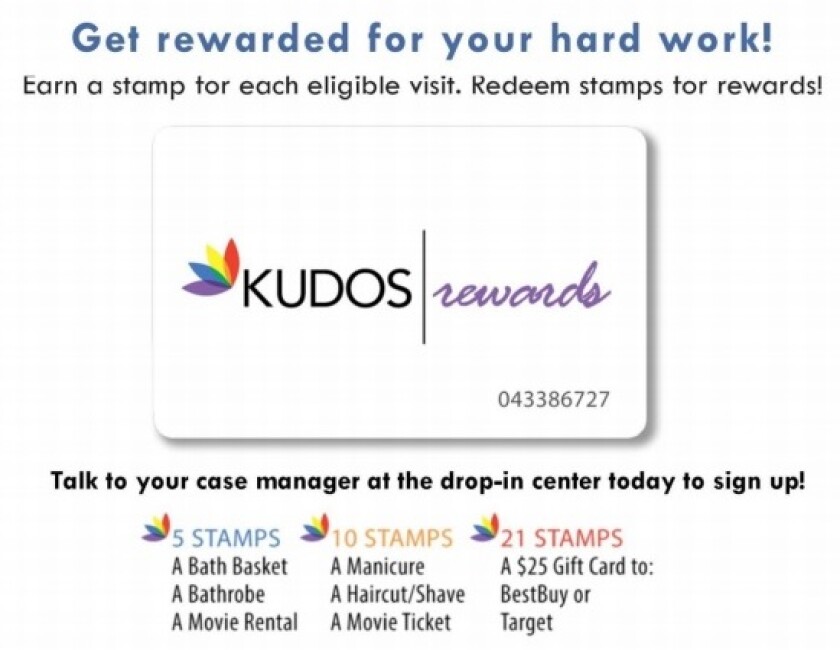That’s the question raised by a handful of graduate students from New York University's Robert F. Wagner School of Public Service. In March, they won $5,000 at the National Public Policy Challenge, hosted in Philadelphia by the Fels Institute of Government at the University of Pennsylvania, for their idea to incentivize young homeless LGBTQ people to seek help.
Almost 8,000 homeless people in New York City are under 18 years old and identify as lesbian, gay, bisexual, transgender or questioning. While every homeless person arguably needs help, this segment of the population is at higher risk of substance abuse, mental illness, risky sexual behavior and victimization. But the nonprofits that serve LGBTQ homeless youth have trouble getting their clients to make use of mental health and drug addiction services that would help them the most.
That's where the rewards program, called Kudos, comes in.
“We wanted a name that would evoke positive meanings or encouragement,” said Derek Weng, one of the team members. “Kudos jumped out to us because it’s a pat on the back. Every time they visit the office, we want to recognize that accordingly.”
Under a six-month pilot project, the NYU students plan to work with the New York-based Ali Forney Center, the nation's largest service provider dedicated to LGBTQ homeless youth. They'll provide paper cards to 100 people in this population. Staff at the center will then stamp the cards when clients take advantage of therapy or substance abuse treatment. After accumulating enough stamps, the participants are eligible for rewards, such as pre-paid transit cards, movie tickets and nail salon gift certificates.

An advertisement for the students' proposed rewards program.
The basic framework of the Kudos rewards system is already in practice in some places. For example, a crisis shelter in Seattle awards paper bills called “Spruce Bucks” to people for positive behavior, such as doing chores and participating in community-building activities at the center. The points can be used to purchase lotions, soaps and toys at the center's in-house store.
Outside the realm of homeless services, local governments are testing financial incentives as a means to reduce violent crime, encourage better parenting and compel young families to save for college.
But Kudos isn't just a rewards program: It can help administrators track clients' use of services and target specific services that aren't being used enough. Eventually, Kudos would expand to other homeless service providers, both for LGBTQ youth and other segments of the population.









